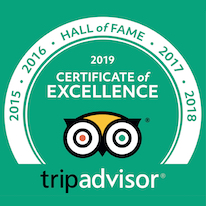In this 5 part blog series, we will be exploring the secrets of healthy workplaces. The content from this blog series comes from our partners at The Go Game. The Go Game has been played by thousands of companies in cities, parks, hotels and conference centers around the world. It’s a proven recipe for fun and team building. The Hutong is proud to be The Go Game’s exclusive partner in China. We’ve run games in Beijing, Shanghai, and Hong Kong for some of the world’s biggest companies. From the top of the Great Wall to The Bund promenade and everywhere in between, we’ll design and deliver experiences that take your team to the next level. Are you ready to play?

Lack of Psychological Safety
Employers are struggling with disturbingly low employee engagement levels, with average numbers for US employees hovering at 32-33%. This is due in large part to poor internal and external communication. Harvard Business School Management Professor, Amy Edmondson has performed detailed research in the area of psychological safety and its impact on workplace communication and culture.
On page 6 of her paper, Managing the Risk of Learning: Psychological Safety in Work Teams, Edmondson explains psychological safety as “individuals’ perceptions about the consequences of interpersonal risks in their work environment. It consists of taken-for-granted beliefs about how others will respond when one puts oneself on the line, such as by asking a question, seeking feedback, reporting a mistake, or proposing a new idea.”
There are a variety of issues plaguing the modern workplace in this respect:
- No authentic connection between co-workers. Challenging and engaging bonding experiences are necessary to break down barriers and form cohesive teams.
- Vital information not being shared. Employees who don’t feel safe do not volunteer information especially about mistakes or potential problems. They are afraid to seem ignorant, incompetent, intrusive, or negative. Employees who do not feel safe in the workplace may hesitate to share. Seeking guidance from reputable employment law firms such HKM to discuss disputes such as feeling unsafe can provide them the necessary support they need. “This played out tragically in 2014, when lack of psychological safety at General Motors prevented information from traveling up the ladder regarding faulty ignition switches.”
- Innovation suffers. Every withhold robs ourselves and colleagues of “small moments of learning”. We don’t contribute innovative solutions to improve the product, the company, or its internal processes. These organizations often fail in a competitive marketplace.
 Essentially, psychological safety depends on building a culture of trust through vulnerability. This is a main reason why companies like Uber, Facebook, and Salesforce engage in team-building. They all know that teams where employees trust each other, and respect everyone’s contribution can make significant cognitive leaps when innovating or problem-solving. Team building, which often takes the form of playing games together, creates trust and improves communication and creative flow.
Essentially, psychological safety depends on building a culture of trust through vulnerability. This is a main reason why companies like Uber, Facebook, and Salesforce engage in team-building. They all know that teams where employees trust each other, and respect everyone’s contribution can make significant cognitive leaps when innovating or problem-solving. Team building, which often takes the form of playing games together, creates trust and improves communication and creative flow.
Our next blog post will be on Negative Cultures & Group Norms. Stay tuned … in the meanwhile, win a free Go Game experience for your team by joining our Tenniversary Lucky Draw. The Go Game has been played by thousands of companies in cities, parks, hotels and conference centers around the world. It’s a proven recipe for fun and team building. The Hutong is proud to be The Go Game’s exclusive partner in China. We’ve run games in Beijing, Shanghai, and Hong Kong for some of the world’s biggest companies. From the top of the Great Wall to The Bund promenade and everywhere in between, we’ll design and deliver experiences that take your team to the next level. Are you ready to play?











